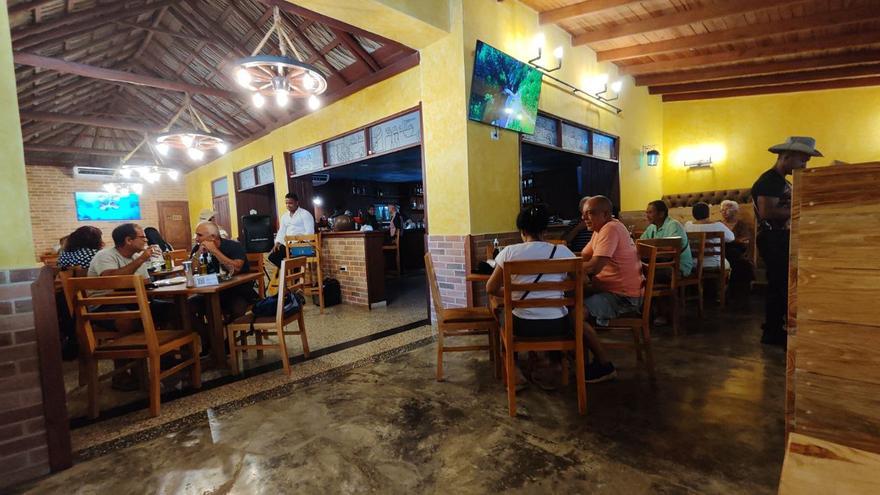
![]() 14ymedio, Havana, 25 December 2023 — They started popping up, little by little at the beginning of the year, without all the attendant publicity the official media usually gives to these sorts of places. Establishments that were once state-owned, that closed after languishing for years, have reopened overnight as mipymes (a Spanish acronym for micro, small and medium-sized businesses, or MSMEs in English).
14ymedio, Havana, 25 December 2023 — They started popping up, little by little at the beginning of the year, without all the attendant publicity the official media usually gives to these sorts of places. Establishments that were once state-owned, that closed after languishing for years, have reopened overnight as mipymes (a Spanish acronym for micro, small and medium-sized businesses, or MSMEs in English).
Well-stocked stores, restaurants with good food, tastefully decorated boutique hotels. None of this would be strange in any place else of the world. On the contrary, it would be an excellent indication of the solid state of an economy that is committed to private initiative and the prosperity of small businesses. But Cuba is not just any place, and the issue is multi-faceted.
First, there is the opacity. Normally, if the state wanted to sell or rent out a property to an MSME, it would solicit bids. This is what Cuban law, specifically a resolution adopted in April 2022, requires but the government has done little to publicize it. This lack of transparency has fueled a lot of suspicion. Who owns these businesses and how did they get them? How were the new owners chosen if they did not have connections in the highest echelons of power?
Home Deli, a store that has three Havana locations, is owned by an Italian, Andrea Gallina, and his Cuban wife, Diana Sainz, who signs with a different surname than the one she inherited from her father, Ricardo Sáenz, one of the founders of the Prensa Latina news agency and the magazine Bohemia. The couple also own Café Bohemia and the adjacent hotel, Estancia Bohemia, in Old Havana, as well as the Paseo 206 Boutique Hotel in Vedado and its ground-floor cafe, Ecléctico.
Though Cuban law and the U.S. embargo prohibit it, several emigrés have opened businesses in Cuba using other people’s names
Then there is the murkiness. For example, very little is known about the owners of the Diplomarket grocery store or the Antojos restaurant except that both are owned by Cuban nationals living in the United States. Diplomarket, which has been described as “the Cuban Costco” due to some similarities it shares with the American chain, belongs to the Miami-based Las Americas TCC Corporation, whose vice president is Frank Cuspinera Medina.
Though Antojos is owned by Reinaldo Rivero, the business is registered in the name of his ex-wife and managed by their son, Reinaldito. Rivero and a foreign partner provided capital not only for the bar but also for the company that provides security to both establishments, which are located on Espada Alley in Old Havana.
Obel Martinez, a dual national who holds both Cuban and U.S. citizenship, now owns the iconic La Carreta, a restaurant in Vedado, as well as the Mojito-Mojito bar in Old Havana.
Though currently a violation of both Cuban law and the U.S. embargo, several emigrés have opened businesses in Cuba using the names of other people on the island., in some cases in association with local officials. The regime seems to be counting on them to save it disastrous economy.
They have, however, been met with rejection by most of the public, who cannot afford their prices and who now realize that the revolution that was supposed to eliminate inequality has, in the end, created new class divisions.
Those who for decades were called worms, traitors and counterrevolutionaries are now the regime’s last great hope for prolonging its agony.
____________
COLLABORATE WITH OUR WORK: The 14ymedio team is committed to practicing serious journalism that reflects Cuba’s reality in all its depth. Thank you for joining us on this long journey. We invite you to continue supporting us by becoming a member of 14ymedio now. Together we can continue transforming journalism in Cuba.
